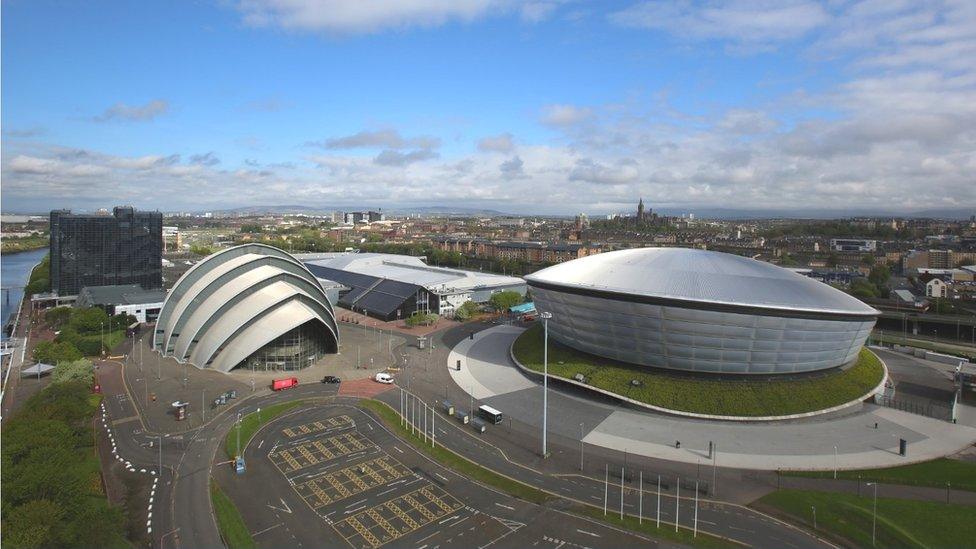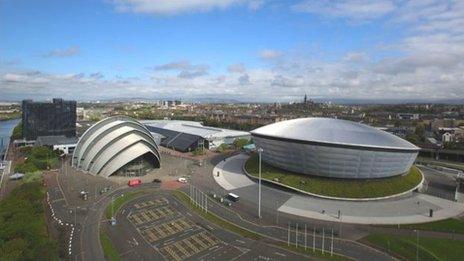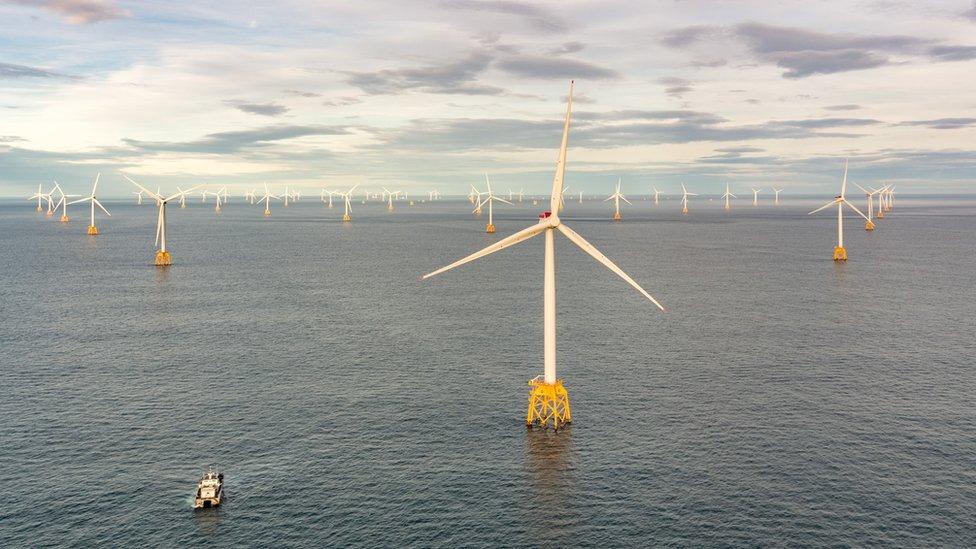COP 26: New date agreed for UN climate summit in Glasgow
- Published
- comments

The original venue - Scottish Events Campus in Glasgow - was turned into a temporary hospital in response to coronavirus
A new date has been agreed for an international climate change summit in Glasgow.
The COP26 UN summit will now take place between 1 and 12 November next year.
It was originally supposed to take place in November 2020. However, it had to be postponed due to the pandemic.
Dozens of world leaders will attend the gathering, the most important round of talks since the global Paris Agreement to tackle climate change was secured in 2015.
This year's event was due to take place at the Scottish Events Campus in Glasgow, which has been turned into a temporary hospital in response to coronavirus.
'Clean, resilient recovery' from Covid-19
COP26 President Alok Sharma said: "While we rightly focus on fighting the immediate crisis of the coronavirus, we must not lose sight of the huge challenges of climate change."
Mr Sharma, who is also the UK government's business secretary, added: "With the new dates for COP26 now agreed we are working with our international partners on an ambitious roadmap for global climate action between now and November 2021.
"The steps we take to rebuild our economies will have a profound impact on our societies' future sustainability, resilience and wellbeing and COP26 can be a moment where the world unites behind a clean resilient recovery.
The UN Climate Change Executive Secretary, Patricia Espinosa, said: "If done right, the recovery from the Covid-19 crisis can steer us to a more inclusive and sustainable climate path."

This has come as no surprise to those who understand how UN climate conferences work.
Since the Paris agreement, the annual gathering has been seeking to further the international commitment to limit global temperature rises.
But that work doesn't just happen in the scheduled two weeks where delegates gather at cities around the world, in this case Glasgow.
International diplomacy by the next host nation - the UK for COP26 - begins the moment the gavel comes down on the previous COP.
Without it, there would be very little progress and with minds so heavily focused on tackling Covid-19 this other crisis - the climate one - has taken a bit of a back seat.
Plus, countries will need to understand what their starting position is with economies being crushed by the pandemic.
Many world leaders are talking of a "green recovery" and so allowing this breathing space might be beneficial to the long term climate cause.

This year marks the date by which countries are expected to come forward with stronger emissions cuts to meet the goals of the deal.
Plans submitted so far put the world on a pathway towards more than 3C of warming, though the Paris Agreement commits countries to curb temperatures to 1.5C or 2C above pre-industrial levels to avoid the worst impacts of climate change.
But with countries around the world grappling with coronavirus, and many putting citizens in lockdown, governments have prioritised the immediate global health crisis.
Since the pandemic took hold, greenhouse gas emissions have dropped sharply as industry and transport have been curtailed, but experts have warned that pollution will soon bounce back without climate action.
- Published26 May 2020

- Published18 December 2020
